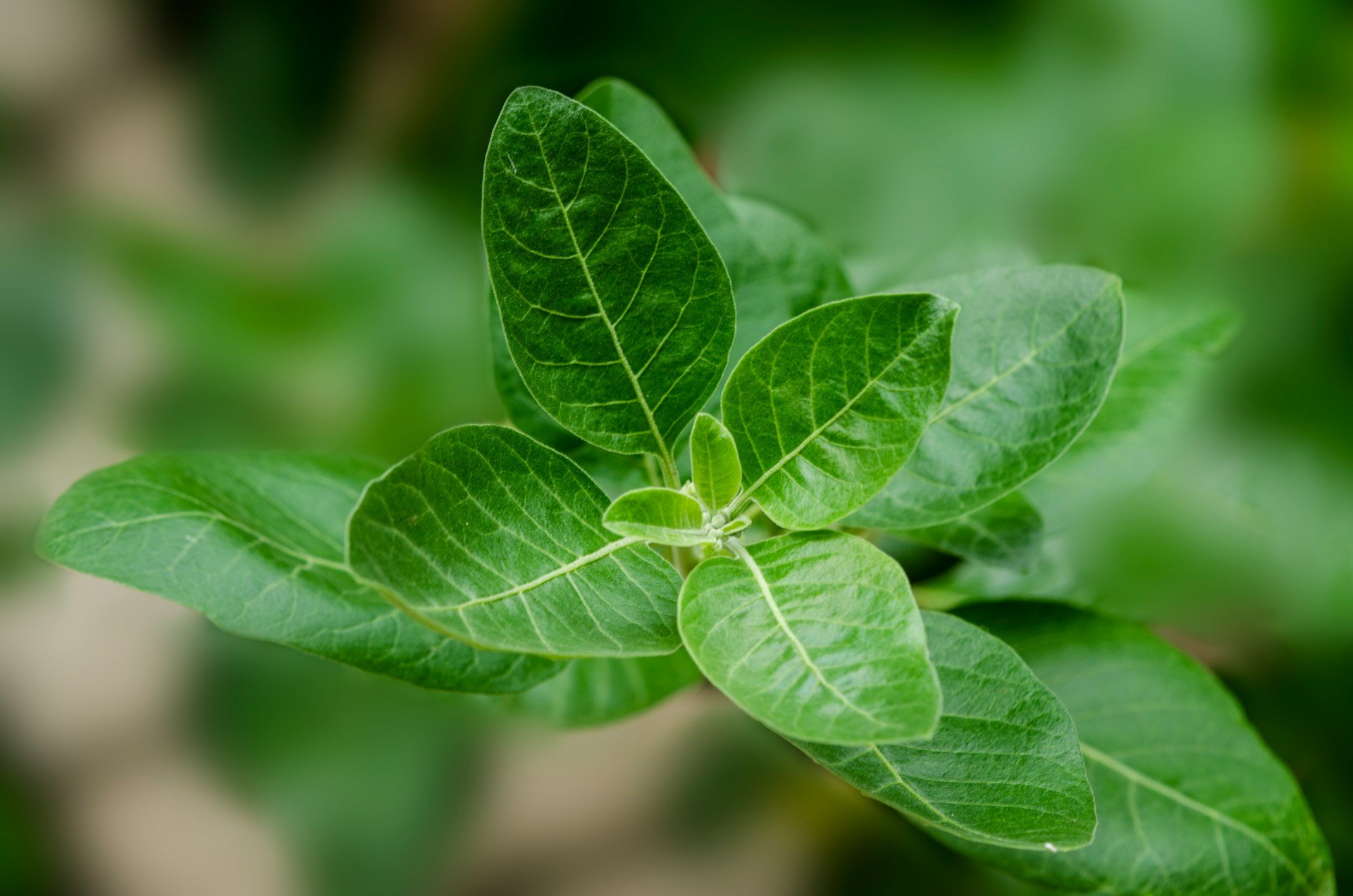Ashwagandha Brings Calm and Balance
Photo by Bankim Desai @ Unsplash
Revered in the region of India as much as ginseng in the Orient, ashwagandha Is an important herb used in the ancient alternative medicine Ayurveda. Although research-based evidence is lacking here in the West ashwagandha has been part of Ayurvedic medicine for thousands of years. This herb is also called winter cherry or poison gooseberry. Its conical name is
Withania somnifera.
In traditional Chinese medicine (TCM), ashwagandha is used to treat a variety of conditions and aid in recovery building immunity and strength. Known in TCM to enhance overall energy,, and tonify the energies of the immune system, lungs, and the spleen. It is prescribed to help with anxiety and stress disorders, colds, coughs, diarrhea, heaviness in chest, impotence, increase male fertility, insomnia, lack of appetite, mental confusion, poor memory, and tuberculosis.
Ashwagandha a natural steroid
Ashwagandha contains numerous beneficial properties, with two particular compounds known to have significant physiological actions in the body. The ‘alkaloids’ and ‘withanolides’ present in Ashwagandha are similar to those of ginseng., The withanolides found in ashwagandha have anti-inflammatory qualities and act as steroids.
Both ashwagandha alcoholic root extract and ashwagandha powder have a higher steroid potency than hydrocortisone.
Relieve Stress with Ashwagandha
Researchers have found ashwagandha helpful in treating stress and anxiety. Stress causes body systems to overwork or under-perform and increases risk of disease.
Ashwagandha’s adaptogenic effect helps with muscle stress. Adaptogens like ashwagandha help the body’s homeostasis. In other words, it helps keep the body in its natural state of balance.
Along with its centuries-long history as an effective sleep aid, one study showed Ashwagandha’s ability to reduce stress could lead to a better quality of life overall.
Ashwagandha shows promise in blood sugar regulation
A lot of research is underway into Ashwagandha’s beneficial effects. Researchers were able to show Ashwagandha’s ability to lower blood glucose levels, as well as help improve glucose tolerance in aging animals. This could lead to effective new treatments for diabetes and obesity.
Research has also found ashwagandha helpful in reducing food cravings and saliva cortisol levels.
Ashwagandha’s Role in Mental Health
In the field of mental health ashwagandha holds great potential. Reports originating out of India from as far back as 1992, reveal ashwagandha is effective at reducing symptoms in people suffering from anxiety disorders, panic attacks, and other such mood disorders.
Research shows ashwagandha helps treat depression.
Ashwagandha has a long history as a memory enhancer.
Other potential treatments
Studies in human volunteers and rats have demonstrated conclusively ashwagandha’s ability to send tumors into regression when taken in alcoholic root extract form. Other studies showed reduction in arthritic inflammation in both humans and rats including rheumatoid arthritis.
Nutritional Content of Ashwagandha
Ashwagandha is rich in phytochemicals.
Nutrients found in 100 grams of ashwagandha include
23 mg calcium
75 mcg carotene,
3.3 mg iron
6 g vitamin C.
Some people with anemia use ashwagandha because of its high iron content.
Potential benefits of taking ashwagandha
Athletic performance and endurance.
Blood sugar management.
Cognitive function.
Fertility boost in males.
Inflammation reduction.
Memory improvement.
Dosage
Normally safe to take up to 3 months. The effects of its long-term use have not been studied.
High doses can cause diarrhea, nausea, and vomiting.
Recommended dosage is 250 – 1,250 mg daily.
Contraindications
Please consult a professional before taking ashwagandha especially if you are on any medication.
Caution is advised for people taking anti-anxiety drugs.
Ashwagandha may interact with diabetes, hormone, and hypertension medications, as well as immune suppressants.
May not be suitable for men with hormone-sensitive prostate cancer.
Women who are pregnant or breastfeeding should consult their physician before taking ashwagandha or any other herbal supplement.
